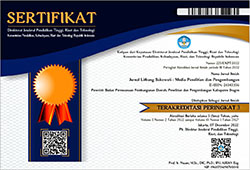Disparity And Convergence Of Per Capita Income In The Kedungsepur Area
DOI:
https://doi.org/10.32630/sukowati.v8i2.497Keywords:
income disparities, convergence, dynamic panel, FD-GMM, KedungsepurAbstract
Abstract. Kedungsepur is an area designated as the primary center of economic growth in Central Java, thus becoming the region with the highest total Gross Regional Domestic Product (GRDP) among its regencies and cities. However, this achievement is not accompanied by equitable income distribution among its constituent regencies and municipalities. This study aims to examine the disparities and analyze the existence of per capita income convergence and its influencing factors in Kedungsepur from 2017 to 2022. Descriptive analysis found that income disparities in Kedungsepur have escalated over the past six years. Furthermore, there has been a transition to a better economic pattern in some areas, namely Kendal Regency and Grobogan Regency. The level of dispersion of GRDP per capita among regencies/municipalities has also increased, thereby disproving the occurrence of sigma convergence. Based on the results of modeling with dynamic panel regression FD-GMM,, it is concluded that absolute and conditional beta convergence is occurring in Kedungsepur. Significant variables affecting GRDP per capita include TPT, RLS, PAD, and population size, while the percentage of roads in good condition does not exhibit a significant impact on GRDP per capita. Therefore, local governments can optimize sources of regional revenue, enhance employment opportunities and the quality of education, as well as effectively manage population growth.
Keyword: income disparities, convergence, dynamic panel, FD-GMM, Kedungsepur
Downloads
Published
How to Cite
Issue
Section
License
Copyright (c) 2024 Nashif Satria Ramadhan, Siskarossa Ika Oktora

This work is licensed under a Creative Commons Attribution 4.0 International License.


















